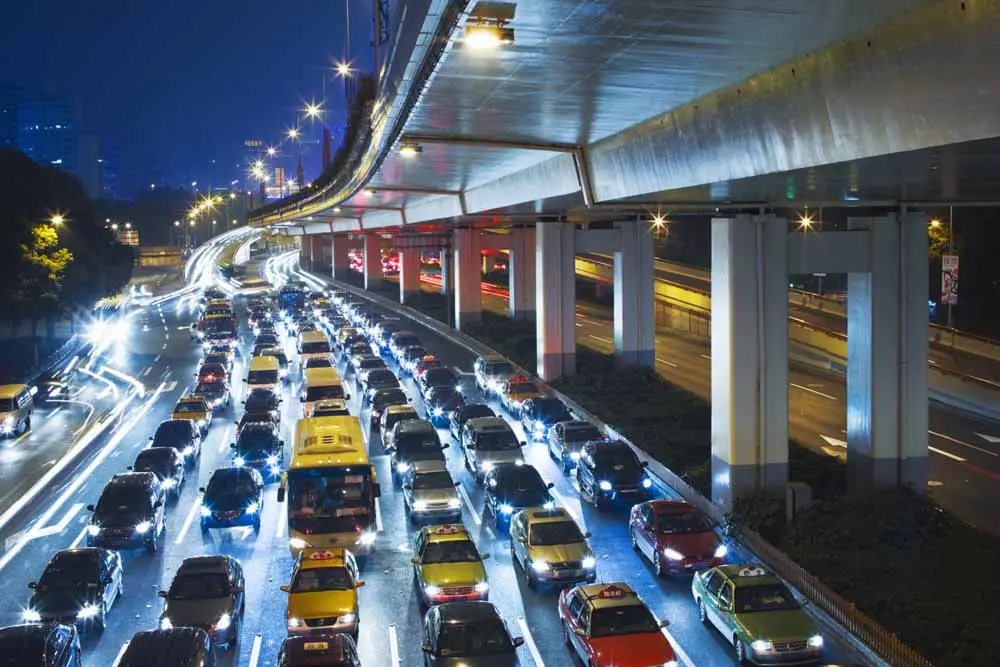How does a car’s traffic jam assist system work?


How does a car’s traffic jam assist system work?
In recent years, car manufacturers have been incorporating advanced technologies into their vehicles to enhance safety and improve the driving experience. One such technology is the car traffic jam assist system, which is designed to assist drivers in navigating through traffic jams. This article will delve into the workings of a car’s traffic jam assist system, exploring the technology behind it and its benefits for drivers.
What is a car traffic jam assist system?
A car traffic jam assist system is a driving assistance technology that helps drivers navigate through congested traffic situations. It is a part of the broader concept of autonomous driving, which aims to reduce the driver’s workload and enhance safety on the road. The traffic jam assist system utilizes a combination of sensors, cameras, and advanced algorithms to monitor the vehicle’s surroundings and make necessary adjustments to maintain a safe distance from other vehicles.
How does it work?
The car traffic jam assist system relies on a variety of sensors and cameras to gather information about the vehicle’s surroundings. These sensors include radar, lidar, and ultrasonic sensors, which provide data about the distance, speed, and position of other vehicles on the road. The cameras capture visual information, such as lane markings and traffic signs, to assist in navigation.
Once the system has gathered the necessary data, it uses advanced algorithms to analyze the information and make decisions based on predefined rules. The algorithms take into account factors such as the vehicle’s speed, the distance to the vehicle in front, and the lane markings to determine the appropriate actions to take. The system can automatically adjust the vehicle’s speed, apply the brakes, and steer the vehicle within the lane to maintain a safe distance from other vehicles.
Benefits of a car traffic jam assist system
The car traffic jam assist system offers several benefits for drivers, including:
1. Reduced driver fatigue: Traffic jams can be mentally and physically exhausting for drivers. The traffic jam assist system takes over the monotonous task of maintaining a safe distance from other vehicles, allowing the driver to relax and reduce fatigue.
2. Increased safety: The system’s ability to monitor the vehicle’s surroundings and make quick adjustments helps prevent accidents in congested traffic situations. It can react faster than a human driver, reducing the risk of rear-end collisions and other accidents.
3. Improved traffic flow: By maintaining a consistent speed and distance from other vehicles, the traffic jam assist system can contribute to smoother traffic flow. This can help reduce congestion and shorten travel times for all drivers on the road.
4. Enhanced convenience: Navigating through traffic jams can be a frustrating experience. The traffic jam assist system takes some of the stress out of the situation by automatically adjusting the vehicle’s speed and steering, allowing the driver to focus on other tasks or simply enjoy the ride.
Limitations and considerations
While the car traffic jam assist system offers significant benefits, it is important to note its limitations and consider certain factors:
1. Limited to certain conditions: The system is designed to operate in specific conditions, such as slow-moving traffic or stop-and-go situations. It may not be suitable for high-speed driving or in situations where the traffic flow is unpredictable.
2. Driver attention required: Despite the system’s capabilities, it is crucial for the driver to remain attentive and ready to take control of the vehicle if necessary. The traffic jam assist system is not a fully autonomous driving technology and still requires the driver to be actively engaged.
3. Regulatory considerations: The use of driving assistance technologies, including the traffic jam assist system, may be subject to local regulations. It is important for drivers to familiarize themselves with the legal requirements and limitations of such systems in their respective jurisdictions.
In conclusion, a car’s traffic jam assist system is a valuable technology that helps drivers navigate through congested traffic situations. By utilizing a combination of sensors, cameras, and advanced algorithms, the system can automatically adjust the vehicle’s speed, apply the brakes, and steer within the lane to maintain a safe distance from other vehicles. The system offers benefits such as reduced driver fatigue, increased safety, improved traffic flow, and enhanced convenience. However, it is important to consider the system’s limitations and regulatory requirements to ensure safe and responsible use.
Recent Posts
How do I create an engaging and informative online quiz or assessment?
Creating an engaging and informative online quiz or assessment can be a powerful tool for… Read More
What are the most effective methods for managing and reducing work-related stress in the hospitality industry?
Work-related stress is a common issue in the hospitality industry, where employees often face long… Read More
How can I improve my assertiveness and communication skills in a leadership position?
In a leadership position, assertiveness and effective communication skills are crucial for success. Being able… Read More
What are the key elements of a successful employee recognition and rewards program?
Employee recognition and rewards programs play a crucial role in motivating and engaging employees, as… Read More
How do I effectively manage and respond to customer feedback and reviews?
Customer feedback and online reviews play a crucial role in shaping a company's reputation and… Read More
What are the best strategies for effective time management as a stay-at-home parent?
Effective time management is crucial for stay-at-home parents who juggle multiple responsibilities on a daily… Read More